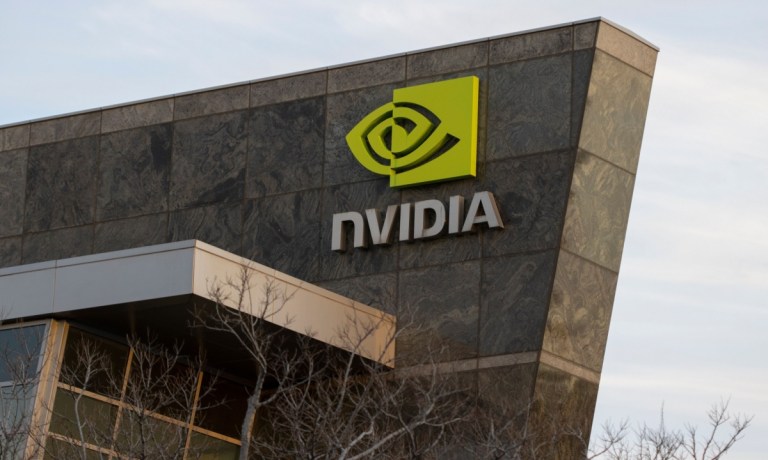
Nvidia’s latest earnings report released Wednesday (Aug. 28) revealed a paradox: record-breaking revenue fueled by artificial intelligence chip demand, yet a deceleration in growth that left investors jittery.
The company’s performance, particularly in its data center segment, which includes AI-focused products, remained strong in the second quarter. However, the sequential growth rate slowed compared to the unprecedented expansion seen in recent quarters. This shift suggested that the initial surge in AI chip demand might be leveling off to a more sustainable pace.
Despite beating analyst expectations, Nvidia’s stock price dipped in after-hours trading. The market response highlighted the high growth expectations built into Nvidia’s valuation and increasing investor concerns about the long-term sustainability of AI-driven growth in the semiconductor industry.
Nvidia reported total revenue of $30 billion, up 15% from the previous quarter and up 122% from the $13.5 billion for the same quarter a year ago.
The results paint a nuanced picture of the AI chip market. While demand remains robust, the slowdown in sequential growth could indicate that AI companies and cloud providers are digesting their large-scale hardware investments. It may also suggest that the initial wave of AI infrastructure buildout is maturing.
“Nvidia achieved record revenues as global data centers are in full throttle to modernize the entire computing stack with accelerated computing and generative AI,” Nvidia founder and CEO Jensen Huang said in the earnings release.
He highlighted ongoing demand for the company’s current GPU architecture, Hopper, and enthusiasm for the upcoming Blackwell generation.
However, during a call with analysts, management said Blackwell’s production ramp-up would happen in the fourth quarter. Analysts had expected Blackwell to start full shipments in the current quarter, according to The Street. It’s a setback that could further impact Nvidia’s growth trajectory.
The slowing growth rate comes amid increasing challenges for Nvidia in the AI space. Competition in the AI chip market is intensifying, with rivals like AMD and Intel ramping up their efforts. Additionally, as major tech companies complete their initial AI infrastructure buildouts, questions are arising about the sustainability of demand for Nvidia’s high-end chips.
Despite these challenges, Nvidia continues to position itself as a comprehensive AI solutions provider. Huang drew attention to new product categories gaining traction.
“Spectrum-X Ethernet for AI and Nvidia AI Enterprise software are two new product categories achieving significant scale, demonstrating that Nvidia is a full-stack and data center-scale platform,” he said in the release.
This diversification could help buffer against potential slowdowns in GPU demand but also introduce new competitive challenges.
Regulatory scrutiny is also increasing, potentially adding another hurdle to Nvidia’s growth ambitions. The company disclosed requests for information from regulators in the United States and South Korea, adding to existing inquiries from the European Union, the United Kingdom and China, Reuters reported. These requests relate to various aspects of Nvidia’s AI business, including GPU sales, supply allocation, and partnerships with companies developing foundation models, the company said in a first-quarter filing with the Securities and Exchange Commission (SEC).
Nvidia’s guidance for the third quarter suggested the company expects the growth deceleration to continue. It projects revenue of $32.5 billion, plus or minus 2%, per the release, which would represent a more modest sequential increase compared to recent quarters. The company also expects adjusted gross margin of 75%, plus or minus 50 basis points, slightly below analysts’ average estimate of 75.5%.
Huang maintained an optimistic long-term view, saying in the release: “Generative AI will revolutionize every industry.”
However, the immediate challenge for Nvidia will be navigating the transition from explosive growth to a more sustainable pace while maintaining its leadership in the AI chip market.
For all PYMNTS AI coverage, subscribe to the daily AI Newsletter.